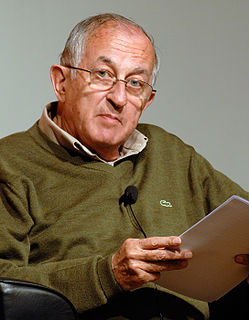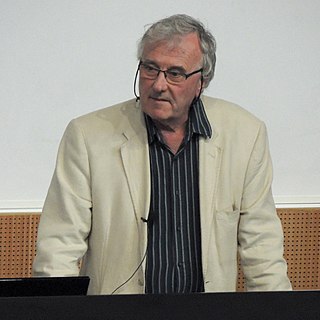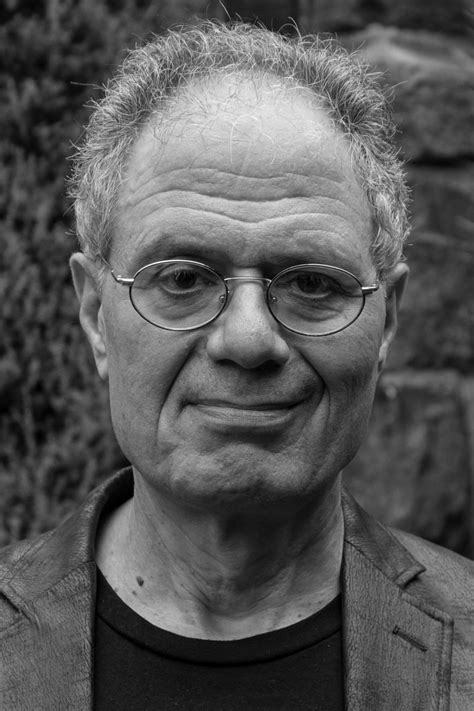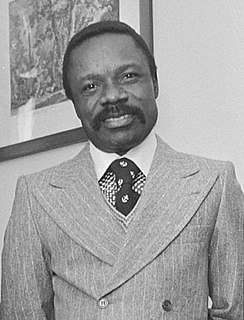A Quote by Stuart Hall
The nature of power in the modern world is that it is also constructed in relation to political, moral, intellectual, cultural, ideological, sexual questions.
Related Quotes
I'm an adult and I know what power means in the modern world. In the modern world, power is mainly defined by such factors as the economy, defence and cultural influence. I believe that in terms of defence, Russia is without any doubt one of the leaders because we are a nuclear power and our nuclear weapons are perhaps the best in the world.
Museums have no political power, but they do have the possibility of influencing the political process. This is a complete change from their role in the early days of collecting and hoarding the world to one of using the collections as an archive for a changing world. This role is not merely scientifically important, but it is also a cultural necessity.
The ideological and cultural revolutions have been promoted successfully in the countryside with the result that the ideological and spiritual qualities of our agricultural working people have been transformed remarkably, and a great development has also been achieved in the realm of cultural life in the countryside.
Modernity is the ensemble of changes - intellectual, political, economic, social, cultural, technological, aesthetic - that have altered the world drastically since roughly the 17th century, until which time the world was, in the above respects, far less different from the world of any previous epoch of recorded history than it is from the world of today. The modern predicament is the set of problems these changes have bequeathed us.
Scientific theories never dictate human values, but they can often cast new light on ethical issues. From a sexual selection viewpoint, moral philosophy and political theory have mostly been attempts to shift male human sexual competitiveness from physical violence to the peaceful accumulation of wealth and status. The rights to life, liberty, and property are cultural inventions that function, in part, to keep males from killing and stealing from one another while they compete to attract sexual partners.
I am interested in the political economy of institutional power relationships in transition. The question is one of "reconstructive" communities as a cultural, as well as a political, fact: how geographic communities are structured to move in the direction of the next vision, along with the question of how a larger system - given the power and cultural relationships - can move toward managing the connections between the developing communities. There are many, many hard questions here - including, obviously, ones related to ecological sustainability and climate change.
I believe that the biblical teaching is clear. It always contests political power. It incites to "counterpower," to "positive" criticism, to an irreducible dialogue (like that between king and prophet in Israel), to antistatism, to a decentralizing of the relation, to an extreme relativizing of everything political, to an anti-ideology, to a questioning of all that claims either power or dominion (in other words, of all things political), and finally, if we may use a modern term, to a kind of "anarchism" (so long as we do not relate the term to the anarchist teaching of the nineteenth century).
The ideological are individuals ultimately swamped by the complexities of modern life and political and economic relations; they have deliberately attached themselves to some caricatural maven like Falwell or Limbaugh who speaks to their manipulable pathos. The gulf between such individuals' education or intellectual competence or information and the actual issues of our times is simply too great. They were bred to be culture-media for false consciousness, junkies who crawl on their bellies across broken glass for another hit of "clarifying wisdom" from some ideological Pope.
Political realism is aware of the moral significance of political action. It is also aware of the ineluctable tension between the moral command and the requirements of successful political action. And it is unwilling to gloss over and obliterate that tension and thus to obfuscate both the moral and the political issue by making it appear as though the stark facts of politics were morally more satisfying than they actually are, and the moral law less exacting than it actually is.






































